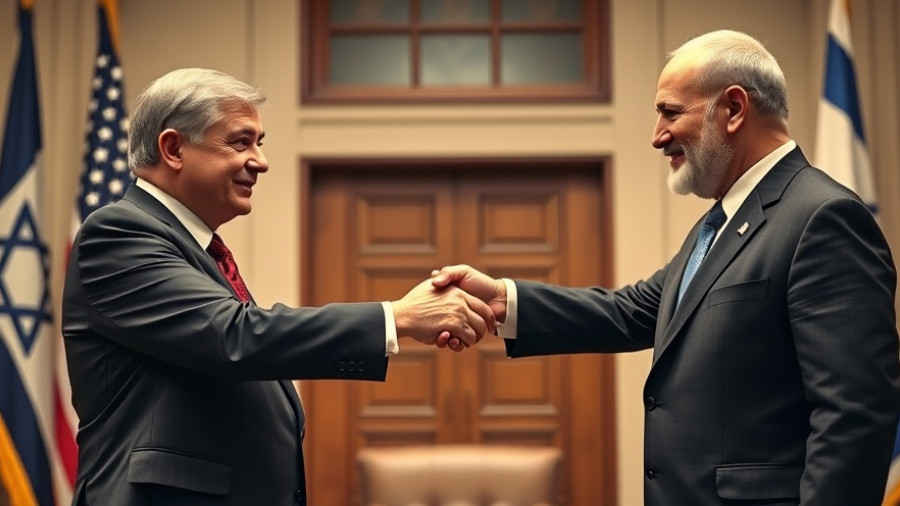
The Growing Strain in US-Israel Relations
In recent weeks, a palpable tension has emerged between the United States and Israel, highlighted by the unexpected cancellation of a visit to Jerusalem by U.S. Energy Secretary Chris Wright. The move follows Israeli Energy Minister Eli Cohen’s decision to delay the signing of a gas export deal with Egypt, a reaction to reported violations of peace agreements by Cairo. This situation not only adds a layer of complexity to diplomatic relations but also raises questions about the stability of crucial agreements in the region.
Understanding the Context
The tensions can be traced back to a framework built on years of collaboration, underscored by critical agreements such as the Abraham Accords. However, events like Cohen’s recent actions and the subsequent U.S. response suggest a shifting landscape where trust and cooperation are increasingly at risk. The U.S. has historically viewed its partnership with Israel as a cornerstone of its foreign policy in the Middle East, enabling it to exert influence and maintain strategic interests in the region.
Why This Matters to Believers
For mission-minded individuals and culturally engaged believers, the dynamics between these two nations transcend politics; they touch upon deeper spiritual and humanitarian concerns. The reactions of world leaders and interfaith dialogues demonstrate the affection, conflicts, and historical ties that bind Christians around the world. Understanding these geopolitical shifts can foster empathy and a sense of urgency in prayer as we navigate complexities impacting our faith communities globally.
Historical Perspectives
The relationship between the U.S. and Israel has not always been smooth sailing; historical tensions have often arisen from conflicting interests. For instance, the aftermath of the Yom Kippur War in 1973 saw the U.S. providing military support to Israel while equally trying to engage Arab nations diplomatically. This history serves as a reminder that current difficulties may be resolved through dialogue and renewed commitment rather than through isolation.
What Does the Future Hold?
As we look ahead, the cancellation of official visits might indicate unsettling trends that could reshape the landscape. With rising nationalism and differing visions for regional security, the potential for further distance between the nations looms. Yet, this could also open pathways for new dialogue and reconciliation efforts, encouraging believers and advocates to engage further in promoting peace and justice.
Steps for Advocacy and Support
Advocacy rooted in informed understanding can play a crucial role in navigating the challenges. For those in humanitarian and interfaith circles, this moment calls for wisdom and strategic engagement. We can take action by fostering conversations, participating in community forums, and even advocating for fair policies that support both humanitarian needs and religious freedoms, particularly for vulnerable communities.
Conclusion: Navigating the Tension
In a world marked by rapid change and conflicting narratives, it is important for mission-minded believers and social justice advocates to stay informed about the perils of geopolitical rifts like those between the U.S. and Israel. As tensions escalate, let’s not forget the call to prayer and action. Engage in dialogue around these issues and pursue avenues that encourage peace, unity, and justice within discussions on Middle Eastern affairs.
 Add Row
Add Row  Add
Add 








Write A Comment